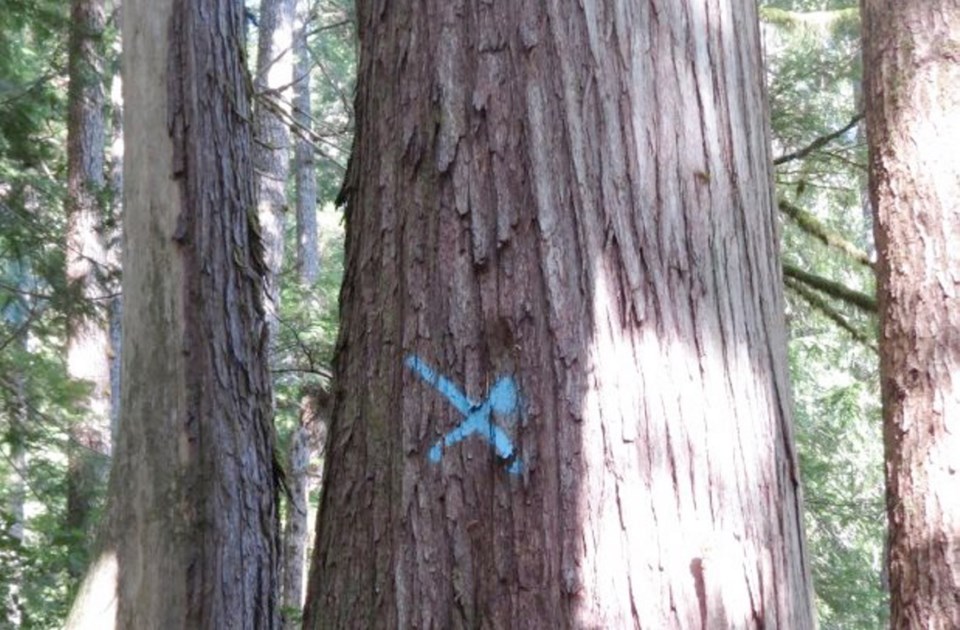The B.C. government has approved a permit for logging on one of eight planned “cutblock” areas in the central Walbran Valley on Vancouver Island, which an environmental group says could reignite the war in the woods from the 1990s.
“This type of old-growth forest is simply too rare to destroy, and the fact the government isn’t responding to this crisis is shameful,” Wilderness Committee campaigner Torrance Coste said in a news release from the group.
The area in question was not protected when more than 16,000 hectares of forests were placed off limits to logging in the Carmanah Walbran Provincial Park created in 1993 following protests and blockades.
The Teal-Jones Group, which manufactures various wood products including from red cedar, has a preliminary plan that lays out eight areas which they want to log in the central Walbran Valley north of Port Renfrew. The Surrey-based company applied for a cutting permit for one of those eight cutblocks which was approved Friday by the B.C. Ministry of Forests, Lands and Natural Resources.
It allows the company to harvest 3,584 cubic metres of timber (the equivalent of about 90 logging truck loads) in an area of about 3.2 hectares.
The total area that is planned for logging would cover more than 20 hectares.
Acknowledging a considerable amount of forest was protected in the Carmanah Walbran park, Coste said in an interview it’s important to protect this old growth forest in the central Walbran Calley, with contains old, large red cedars, because at low elevations less than 10 per cent of Vancouver Island’s old-growth rainforest remains standing.
He said they have had discussion with Teal but have not been able to get the company to change its logging plans.
Coste said the Wilderness Committee is not advocating civil disobedience but noted the last time logging took place in this area, blockades went up.
He said he was aware — through calls and emails to their office — that there are people who are prepared to block the planned logging in the Walbran.
B.C. Ministry of Forests spokeswoman Vivian Thomas noted that the area is in the traditional territory of the Pacheedaht First Nation and they have expressed no concerns.
“As well, Teal Cedar and the (forests ministry) are reviewing current old growth management areas in the area and options for reconfiguration, to provide additional protection for recreational features, trails and significant trees in Castle Grove,” said Thomas in an email.
The Teal-Jones Group could not be reached for comment on Sunday.
But in an interview with the Victoria Times Colonist this summer, Teal-Jones officials said enough compromises had been made from the company which employs 1,000 workers.
The company gave up more than 7,000 hectares to create the Carmanah Walbran Provincial Park.
Chief financial officer Hanif Karmally told The Times that areas protected from logging and immature timber leaves only 11,080 hectares that it can log of its 59,884-hectare tree farm licence.
He said further reductions to its ability to harvest timber would be “detrimental” to the company’s operations.



